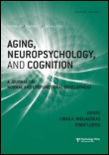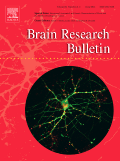
Aging Brain
Scope & Guideline
Fostering Innovation in Gerontology and Neuroscience
Introduction
Aims and Scopes
- Neurodegeneration and Alzheimer's Disease Research:
The journal extensively covers research related to neurodegenerative diseases, especially Alzheimer's disease, focusing on molecular mechanisms, biomarkers, and therapeutic strategies. - Cognitive Aging and Memory:
A significant area of focus is the study of cognitive aging, memory processes, and the factors influencing these changes, including interventions and cognitive resilience. - Brain Structure and Function:
Research examining age-related changes in brain structure and function, including studies on neuroimaging, connectivity, and the impact of lifestyle factors on brain health. - Intervention and Rehabilitation Strategies:
The journal emphasizes the development and evaluation of interventions aimed at improving cognitive function and quality of life in older adults, including psychological and physical rehabilitation. - Molecular and Cellular Mechanisms of Aging:
Research exploring the underlying molecular and cellular changes associated with aging, including studies on inflammation, neuroplasticity, and the role of various biomarkers.
Trending and Emerging
- Role of Lifestyle Factors in Brain Aging:
There is a growing emphasis on understanding how lifestyle factors, such as diet, exercise, and social interaction, impact brain aging and cognitive health, reflecting a holistic approach to brain health. - Neuroinflammation and Immune Response:
Emerging research is increasingly focused on the role of neuroinflammation and the immune system in brain aging, indicating a shift towards understanding the biological underpinnings of cognitive decline. - Precision Medicine Approaches:
The journal is seeing a rise in studies applying precision medicine frameworks to aging and dementia, aiming to tailor interventions based on individual genetic, environmental, and lifestyle factors. - Innovations in Neuroimaging Techniques:
There is a trend towards utilizing advanced neuroimaging techniques to better understand brain structure-function relationships and their changes with aging, enhancing diagnostic capabilities. - Integration of Behavioral and Cognitive Interventions:
Research exploring the integration of behavioral and cognitive interventions is on the rise, focusing on enhancing cognitive resilience and functional outcomes in older adults.
Declining or Waning
- Focus on Single Disease Models:
There seems to be a waning interest in studies focusing solely on single disease models, such as specific types of dementia without considering broader aging contexts or multimorbidity. - Traditional Neuropsychological Assessments:
The reliance on traditional neuropsychological assessments appears to be decreasing in favor of more integrated, multi-modal approaches that consider lifestyle, environment, and neuroimaging data. - Generalized Aging Studies:
Research that broadly examines aging without specific focus on cognitive or neurological outcomes is less prevalent, as the field increasingly seeks targeted studies with clear implications for interventions.
Similar Journals

BRAIN
Exploring the Frontiers of Neurology and MedicineBRAIN, published by Oxford University Press, stands as a preeminent journal in the realms of neurology and medicine, with a formidable impact factor reflecting its rigorous peer-reviewed standards and significant contributions to the field. With its ISSN 0006-8950 and E-ISSN 1460-2156, this esteemed publication spans over a century of exceptional research, converging from its historical roots in 1878 to current groundbreaking studies. BRAIN boasts a distinguished rank of #8 out of 400 in the Scopus category of Neurology (Clinical), placing it in the 98th percentile of institutions, indicative of its influence and reach. Operating under the Q1 category in both Medicine (Miscellaneous) and Clinical Neurology, the journal is dedicated to fostering interdisciplinary dialogue among researchers, clinicians, and students alike. With a focus on innovative findings and clinical advancements, BRAIN serves as a vital resource for those seeking to deepen their understanding of neurological disorders and the evolving landscape of medical research.

NEUROBIOLOGY OF AGING
Illuminating the Pathways of Aging and Brain HealthNEUROBIOLOGY OF AGING, published by Elsevier Science Inc, is a premier journal dedicated to advancing our understanding of the complex interactions between the aging process and neurobiological mechanisms. With an ISSN of 0197-4580 and E-ISSN 1558-1497, the journal has established itself as a critical resource in the fields of Aging, Developmental Biology, Geriatrics and Gerontology, Clinical Neurology, and Neuroscience. Boasting a Q1 ranking in multiple categories, the journal is positioned within the top echelons of scholarly publication, underscoring its significant impact with an impressive Scopus ranking in various subfields. Committed to disseminating high-quality, peer-reviewed research, NEUROBIOLOGY OF AGING welcomes original articles, reviews, and research notes aiming to uncover the underlying processes of aging on the nervous system, fostering collaboration among researchers, professionals, and students alike. Although primarily subscription-based, the journal continues to play a vital role in shaping the discourse on aging and neurobiology, making it an essential publication for those engaged in this dynamic field.

Journal of Integrative Neuroscience
Unlocking the Mysteries of the Brain, TogetherWelcome to the Journal of Integrative Neuroscience, a prominent platform dedicated to advancing the field of neuroscience by fostering interdisciplinary research and innovation. Published by IMR PRESS, this open-access journal has been committed to disseminating high-quality research since its inception in 2002, with a vision to integrate various aspects of neuroscience, from theoretical foundations to applied methodologies, ultimately enhancing our understanding of the brain and nervous system. With an evolving presence in the academic community, the journal holds significant rankings, such as Q2 in Medicine and Q3 in Neuroscience for 2023, reflecting its growing impact and value to researchers and professionals alike. The journal is accessible globally, having adopted an open-access model in 2018, ensuring that vital neuroscience findings reach a broader audience without barriers. Positioned in Singapore and serving an international readership, the Journal of Integrative Neuroscience is your essential resource for the latest insights and discoveries in a rapidly evolving field.

Brain Imaging and Behavior
Unlocking Potential: Pioneering Research in Brain ImagingBrain Imaging and Behavior is a premier journal published by SPRINGER, dedicated to advancing the understanding of the relationship between brain function and behavior through innovative imaging techniques. Since its inception in 2007, the journal has provided a crucial platform for researchers and professionals in fields such as Behavioral Neuroscience, Cognitive Neuroscience, and Psychiatry and Mental Health. With an impressive ranking within the Q1 category in Radiology, Nuclear Medicine and Imaging and maintaining strong Q2 status in several other categories, the journal is positioned as a leading resource for groundbreaking research. The journal aims to disseminate high-quality studies that explore neurobiological underpinnings of behavior, utilizing cutting-edge imaging technologies. Although it is not an open-access journal, the visibility and impact of published works in Brain Imaging and Behavior continue to influence the scientific community significantly, underscoring the critical intersection between imaging science and neuroscience.

RESTORATIVE NEUROLOGY AND NEUROSCIENCE
Innovative Insights: Shaping the Future of Neurological RecoveryRESTORATIVE NEUROLOGY AND NEUROSCIENCE, published by IOS PRESS, is a premier journal dedicated to advancing the fields of neurology and neuroscience. Since its inception in 1989, this journal has played a crucial role in disseminating cutting-edge research findings and innovative therapeutic approaches that aim to restore neurological function and improve patient outcomes. With a focus on developmental neuroscience and clinical neurology, the journal holds a 2023 Scopus ranking of #129 out of 400 in clinical neurology, and #15 out of 37 in developmental neuroscience, reflecting its significant influence in these domains. Although it operates on a non-open access model, RESTORATIVE NEUROLOGY AND NEUROSCIENCE offers valuable insights for researchers, healthcare professionals, and students seeking to deepen their understanding of neural restoration mechanisms and therapeutic strategies. Located in Amsterdam, Netherlands, the journal continues to foster scholarly dialogue and innovation, contributing to the global advancement of neuroscience and neurology.

Brain Connectivity
Bridging Research and Understanding in Neuroscience.Brain Connectivity is a premier journal dedicated to advancing the understanding of neural connections and brain function through innovative research and interdisciplinary collaboration. Published by MARY ANN LIEBERT, INC, this journal has established itself in the field of neuroscience, earning a respectable Q2 ranking in the 2023 category of Neuroscience (Miscellaneous) and a Scopus rank of 61 out of 113 in General Neuroscience. Since its inception in 2011, Brain Connectivity has been at the forefront of research on the intricate web of brain networks, exploring topics such as functional connectivity, neuroimaging, and the implications of connectivity studies for understanding various neurological disorders. Researchers, professionals, and students benefit from comprehensive access to cutting-edge studies and critical reviews, fostering a deeper appreciation of brain dynamics. As the field evolves, Brain Connectivity remains a vital resource for those aiming to contribute to our growing understanding of brain architecture and function.

AGING NEUROPSYCHOLOGY AND COGNITION
Unraveling the complexities of aging cognition.AGING NEUROPSYCHOLOGY AND COGNITION, published by ROUTLEDGE JOURNALS, TAYLOR & FRANCIS LTD, is a leading scholarly journal that spans the interdisciplinary fields of psychology, neuropsychology, and gerontology. With a strong focus on understanding aging processes and cognitive function, this journal serves as a critical platform for researchers, clinicians, and students dedicated to advancing knowledge in the realm of cognitive aging. The journal, established in 1994, presents high-quality research articles, comprehensive reviews, and innovative studies that contribute to the discourse surrounding mental health and aging. Notably, it has been recognized with a 2023 Q2 ranking in Experimental and Cognitive Psychology and Neuropsychology categories, reflecting its significant impact within these domains. The journal includes open access options, making it widely accessible to a global audience. Researchers interested in the latest findings and theoretical developments in aging neuropsychology will find this journal an invaluable resource, further enhanced by its robust Scopus rankings and commitment to academic excellence through 2024 and beyond.

NATURE NEUROSCIENCE
Exploring Innovative Insights in NeuroscienceNATURE NEUROSCIENCE is a premier journal published by NATURE PORTFOLIO, focusing on cutting-edge research in the field of neuroscience. With an esteemed impact factor that reflects its significance in the academic community, this journal occupies an exceptional place in the 2023 Q1 category for neuroscience (miscellaneous) and boasts a leading Scopus rank of #1 out of 113 in general neuroscience, placing it within the top 1st percentile. Since its inception in 1998, NATURE NEUROSCIENCE has consistently delivered high-quality, peer-reviewed articles that contribute to our understanding of the nervous system, driving innovation and scholarship across disciplines. Although it does not offer open access, the journal remains a vital resource for researchers, professionals, and students seeking to stay at the forefront of neuroscientific discovery and discussion. Its editorial commitment to excellence ensures that it continually shapes the trajectory of neuroscience research well into 2024 and beyond, making it an indispensable asset for anyone passionate about the brain and its complexities.

BRAIN RESEARCH BULLETIN
Bridging disciplines to enhance neuroscience knowledge.BRAIN RESEARCH BULLETIN is a leading academic journal published by PERGAMON-ELSEVIER SCIENCE LTD, dedicated to the dissemination of high-quality research in the interdisciplinary field of neuroscience. Since its inception in 1976, this journal has served as a vital platform for researchers, professionals, and students interested in a broad spectrum of topics within neuroscience, making significant contributions to the understanding of brain function and its associated disorders. With a commendable impact factor and a current Scopus rank of #35 out of 113 in general neuroscience, the journal holds a Q2 quartile ranking, underscoring its relevance and influence in the academic community. BRAIN RESEARCH BULLETIN invites submissions of original articles, reviews, and brief communications, enhancing scholarly communication within this dynamic field. Although the journal is not open access, it ensures widespread reach and impact through various subscription models, allowing access to pivotal findings that pave the way for future research advancements. For researchers aiming to share impactful discoveries and insights within the neuroscience community, BRAIN RESEARCH BULLETIN remains an essential outlet.

Behavioral and Brain Functions
Exploring the Intricacies of NeuroscienceBehavioral and Brain Functions is a leading Open Access journal published by BMC, dedicated to advancing the field of behavioral neuroscience, cognitive neuroscience, and biological psychiatry since its inception in 2005. This esteemed journal, based in the United Kingdom, has established itself as a vital resource for researchers and professionals, boasting a remarkable influence demonstrated by its Q1 and Q2 rankings across multiple relevant categories. With its commitment to providing unrestricted access to high-quality research, the journal facilitates the dissemination of significant findings in understanding the complex interactions between behavior and brain function. The journal ranks impressively within the Scopus database, positioning itself among the top-tier publications in its categories, making it an essential platform for academic discourse and innovation. As it converges through 2024, Behavioral and Brain Functions continues to play a crucial role in shaping the forefront of neuroscientific inquiry, inviting contributions that challenge our understanding and promote further exploration in these dynamic fields.